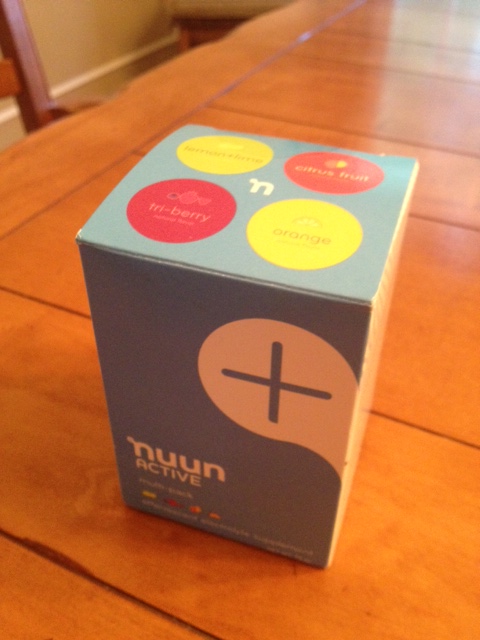How a bad hike turned into a valuable lesson
It wasn’t supposed to turn out this way. We’d only set out to hike a dozen gentle miles on a warm September day. I never expected it to end up like something akin to the Bataan Death March, with me dehydrated and out of water, my body dangerously close to collapse as — twenty grueling miles later — the temperature and humidity soared.
But that agonizing hike turned out to be a blessing, an experience I’m grateful I had. Because while it left me shaken and questioning my sanity, it also taught me some valuable lessons, ones I definitely needed to learn. So here is the take-away from that exhausting hike:
Reality check: I’m not as strong or young as I used to be. Never mind that I used to run twenty miles. Hiking that far for a person my age is hard, and I need to accept that fact. It doesn’t matter how fit I used to be. It doesn’t matter if people zip past me on the trail while I totter over every rock. I need to adjust my expectations and stop pushing myself beyond my endurance or injuries could end my thru-hike before it starts.
I didn’t expect to run out of water. But most hikers who find themselves in life-threatening situations do so precisely because the unexpected occurs. No one expects to get lost. No one expects to fall and break a bone. And no one expects a freak snowstorm to hit while they’re on a mountain, exposing them to hypothermia or stranding them without shelter and food for days on end. But these things really do happen — even on normal day hikes — and it was stupid of me not to think ahead. I should have carried extra water. I should have had purification tablets or a filter on hand so I could safely refill my bottles from a mountain stream. And I definitely should have brought a map so I could judge the distance more accurately. Instead, I was woefully unprepared, creating an emergency that could have ended badly. Lesson learned!
 I did something right. I filled half of my meager water supply with an electrolyte replacement drink before we set out. What I did wrong was not taste-testing it first. I chose the product based on its glowing internet description (low-calorie, gluten-free, low-sugar, etc.). I didn’t realize it would taste like a nasty cross between Alka-Seltzer and a colonoscopy prep drink. I choked it down out of desperation, but was extremely grateful I didn’t have to drink it for months on end. Lesson? No matter how good something sounds and no matter who else swears by it, I need to test my gear, equipment, and food to see if it suits me. And I need to do it before the hike.
I did something right. I filled half of my meager water supply with an electrolyte replacement drink before we set out. What I did wrong was not taste-testing it first. I chose the product based on its glowing internet description (low-calorie, gluten-free, low-sugar, etc.). I didn’t realize it would taste like a nasty cross between Alka-Seltzer and a colonoscopy prep drink. I choked it down out of desperation, but was extremely grateful I didn’t have to drink it for months on end. Lesson? No matter how good something sounds and no matter who else swears by it, I need to test my gear, equipment, and food to see if it suits me. And I need to do it before the hike.
 Trail magic exists. Someone who’d apparently checked the weather report kindly left a cooler of water beside the trail. Unfortunately, it was empty by the time I got there, but I’m sure some thirsty hikers benefited from that act of thoughtfulness. And that magic extended beyond the trail. Later that day, my husband dropped his cellphone as we were getting into the car, and another “angel” found it and turned it in. Pay it forward, people. You never know the good you’ll do!
Trail magic exists. Someone who’d apparently checked the weather report kindly left a cooler of water beside the trail. Unfortunately, it was empty by the time I got there, but I’m sure some thirsty hikers benefited from that act of thoughtfulness. And that magic extended beyond the trail. Later that day, my husband dropped his cellphone as we were getting into the car, and another “angel” found it and turned it in. Pay it forward, people. You never know the good you’ll do!
And finally, I learned that a thru-hike is mostly mental. Of course, I’d read “the book” (Appalachian Trials by Zach Davis). I’d made my list of reasons why I want to hike the trail. But this day of misery gave me a sampling of just how taxing this endeavor will be. It’s going to test me in ways I never expected: physically, emotionally, and especially mentally. It’s going to challenge me at every turn, forcing me to face my limitations and either conquer them or fold. And as the commercial says, that lesson is priceless — even if it took me a while to appreciate that.
This website contains affiliate links, which means The Trek may receive a percentage of any product or service you purchase using the links in the articles or advertisements. The buyer pays the same price as they would otherwise, and your purchase helps to support The Trek's ongoing goal to serve you quality backpacking advice and information. Thanks for your support!
To learn more, please visit the About This Site page.



Comments 1